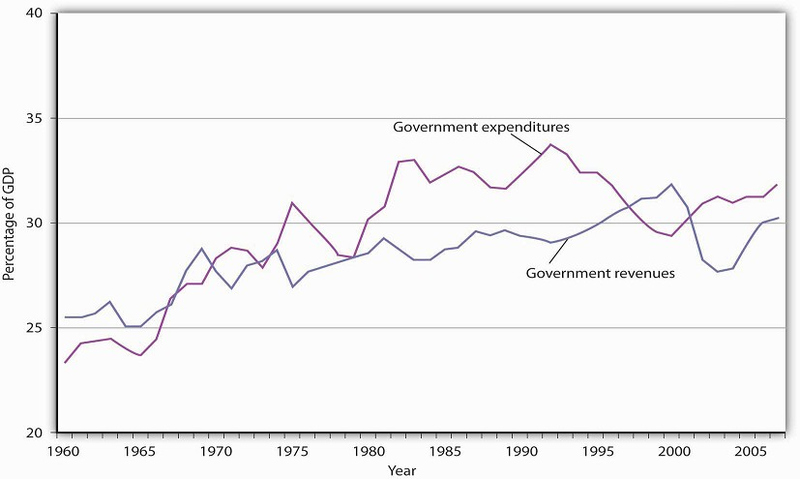The government’s budget balance is the difference between the government’s revenues and its expenditures. A budget surplus occurs if government revenues exceed expenditures. A budget deficit occurs if government expenditures exceed revenues. The minus sign is often omitted when reporting a deficit. If the budget surplus equals zero, we say the government has a balanced budget.

Figure 27.5 compares federal, state, and local government revenues to expenditures relative to GDP since 1960. The government’s budget was generally in surplus in the 1960s, then mostly in deficit since, except for a brief period between 1998 and 2001. Bear in mind that these data are for all levels of government.
Source: Bureau of Economic Analysis, NIPA Table 1.1 and 3.1 (December 23, 2008 revision).
The administration of George W. Bush saw a large increase in the federal deficit. In part, this is the result of the government’s response to the terrorist attacks in 2001. It also results, however, from large increases in federal spending at all levels together with tax cuts in 2001, 2002, and 2003. The federal deficit is projected to be even larger during the administration of Barack Obama.
- 2155 reads






